Federal Court Sides With Seminoles Over Mobile Sports Betting, Could Alter US Gaming Landscape
Posted on: June 30, 2023, 07:31h.
Last updated on: July 3, 2023, 09:55h.
A federal appeals court has sided with the Seminole Tribe in its appeal of a lower court’s ruling. That decsion found the tribe’s Class III gaming compact with the State of Florida violated the federal Indian Gaming Regulatory Act (IGRA).
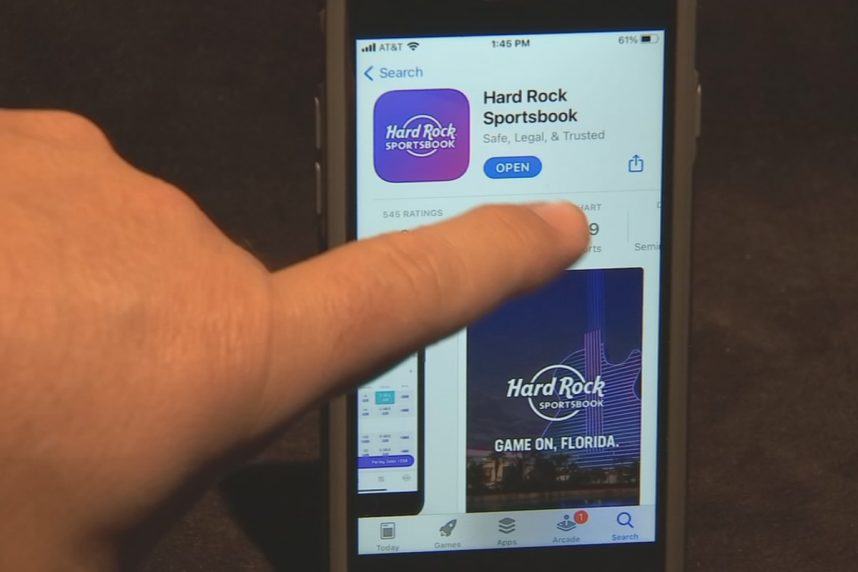
The Seminole Tribe holds a monopoly on Las Vegas-style casino gambling with house-banked table games in Florida. The tribe owns and operates six brick-and-mortar casinos in the Sunshine State, with the portfolio highlighted by Seminole Hard Rock Hotel & Casino Hollywood and Seminole Hard Rock Hotel & Casino Tampa.
In April 2021, the tribe and Florida Gov. Ron DeSantis (R) reached a new, 30-year compact that included providing the tribe with exclusive rights to online sports betting. The deal additionally allowed the Seminoles to add roulette and craps to its casinos in exchange for a minimum payment of $2.5 billion over the first five years of the deal.
The Florida Legislature subsequently approved the revenue-sharing and gaming expansion agreement.
But the provision allowing the tribe to take bets over the internet prompted a legal fight. The lawsuit came from West Flagler Associates, which at the time owned Magic City Casino in Miami and the Bonita Springs Poker Room. The company has since sold Magic City, but retains the card club.
Attorneys for West Flagler argued that Florida’s decision to allow the tribe to take sports bets over the internet violated the Indian Gaming Regulatory Act (IGRA). The company named the Department of the Interior as the defendant since its Bureau of Indian Affairs approved of the deal.
Federal judge Dabney Friedrich in DC’s district court agreed with the plaintiffs in a November 2021 decision that invalidated the compact and put the tribe’s sports betting operations in limbo. It was only weeks earlier that the Seminoles launched their Hard Rock Sportsbook app.
Court Rules IGRA Allows Online Betting
The Seminoles appealed Friedrich’s ruling to the US Court of Appeals for the District of Columbia Circuit.
At the crux of the matter is The Indian Gaming Regulatory Act (IGRA), the federal law that allows tribes to operate Class I and II gaming — defined as bingo games, pull-tabs, and the like, and non-house-banked card games — on their sovereign lands. IGRA also allows states to enter into Class III gaming compacts with federally recognized tribes. Class III gaming includes slot machines, house-banked table games like blackjack, and sports betting.
Friedrich ruled that IGRA only allows states to reach Class III compacts for gaming that physically occurs on sovereign land. Since the Seminole-DeSantis compact permits sports bets over the internet, the state and tribe tried to circumvent that condition by claiming that the sportsbook computer servers would be on Seminole territory and therefore does not run afoul of that law.
The three-judge appeals court on Friday ruled unanimously that IGRA does not prevent the Seminoles from accepting sports bets remotely.
IGRA does not prohibit a gaming compact — which is … an agreement between a tribe and a state — from discussing other topics, including those governing activities ‘outside Indian lands,'” the court said in its 24-page ruling. “In fact, IGRA expressly contemplates that a compact ‘may’ do so where the activity is ‘directly related to’ gaming.”
“The Compact itself authorizes only the betting that occurs on the Tribe’s lands; in this respect it satisfied IGRA,” the ruling continued. “Whether it is otherwise lawful for a patron to place bets from non-tribal land within Florida may be a question for that State’s courts, but it is not the subject of this litigation and not for us to decide.”
DeSantis spokesperson Jason Mahon said the state will continue working with the Seminole tribe “to ensure the success of this historic compact.” When the compact was signed in 2021, state fiscal projections forecast that the state would receive more than $20 billion in tribal gaming revenue during the life of the 30-year compact.
IGRA Challenge Likely
Though the Seminole compact, at least for now, has been deemed legal and the tribe is legally allowed to reopen its online sportsbook, West Flagler could request a full “en banc” hearing by the appellate court. If the circuit refuses, the company’s final recourse would be the US Supreme Court.
The ruling, tribal law experts say, will likely result in tribes across the country that have Class III gaming compacts with sports betting going to their state governors to seek online sports betting privileges. And that could result in an IGRA challenge that could work its way up to the Supreme Court.
It might not end there, said gaming attorney Daniel Wallach. Since the federal appeals court ruled that IGRA doesn’t explicitly prohibit the facilitation of a remote bet, tribes might also seek iGaming rights through their Class III compacts.
This would dramatically alter the national gaming landscape, because it will now be the blueprint for online sports betting and internet gaming across the country,” Wallach told the Miami Herald. “They will be able to control the most lucrative forms of gaming on a statewide basis — to the detriment of non-tribal gaming operators.”
“It sets up a US Supreme Court battle over the breadth and scope of IGRA,” Wallach concluded.
Related News Articles
Seminole Tribe Says Florida Cardroom Sports Betting Challenges Are ‘Strawmen’
Florida Sports Betting: Court Denies Redo, Clearing Way To Resume Wagers
Florida Sports Betting Compact Opponents Take Case to US Supreme Court
Most Popular
Mirage Las Vegas Demolition to Start Next Week, Atrium a Goner
Where All the Mirage Relics Will Go
Most Commented
-
Bally’s Facing Five Months of Daily Demolition for Chicago Casino
— June 18, 2024 — 12 Comments
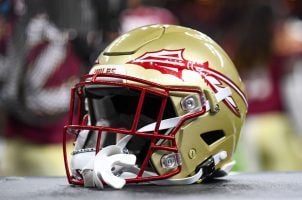
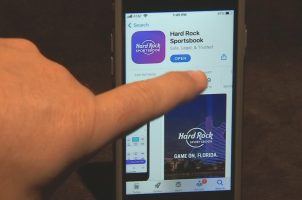
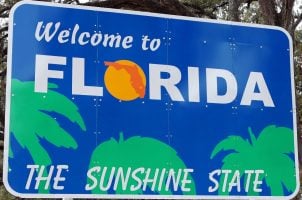
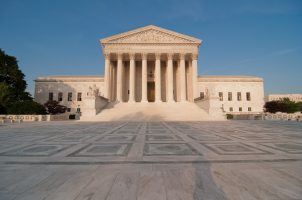












Last Comment ( 1 )
You can buy a $100 lottery ticket in Florida but you can’t put a $100 on a sporting event you hat to go off shore to make a wager or go on a casino boat 3 miles out common sense it’s legal all over the USA I been going through my family friend in Virginia !